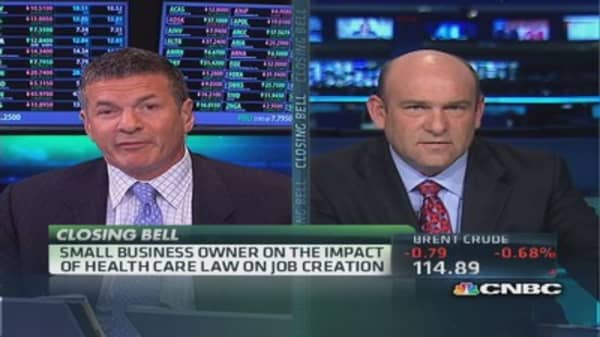Like an iceberg in the distance, private health insurance exchanges look small now—but could be huge very soon.
With news that Time Warner and IBM are moving their retirees into private health exchanges—having them buy insurance from a menu of plans with company subsidies—those marketplaces are on track to explode with enrollments of retirees and active employees across the United States in coming years, experts say.
"It's a fast growth path," said Rich Birhanzel, managing director of Accenture's health administration services division, which recently predicted that the number of people enrolled in private health exchanges will skyrocket from 1 million this year to as much as 40 million by 2018.
If that prediction proves true, it would mean that nearly one-quarter of the estimated 170 million people now enrolled in company-sponsored health plans would end up in private exchanges by then—with room to grow.
(Read more: Companies sweating Obamacare tax—and acting on it)
Accenture expects private health exchanges to have more people enrolled by 2018 than government-run, "Obamacare" public health exchanges, which after beginning operations next month are projected to reach about 31 million enrolled by 2018.
It's a remarkable feat, especially when one considers how little is known about these private exchanges right now. Much of their growth is expected to come from current employees, a relatively untapped market. The majority of people now being funneled into private exchanges are retirees, as in the cases of Time Warner and IBM, not active employees.






